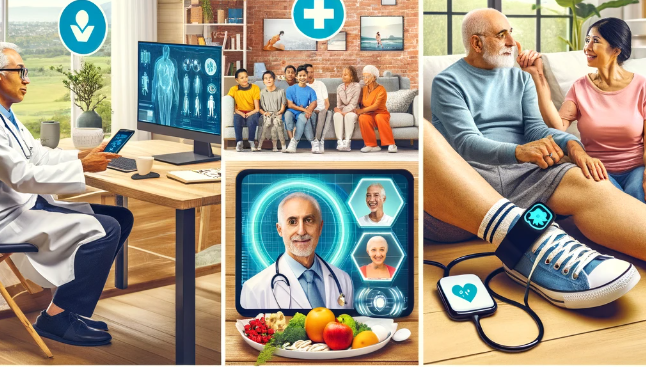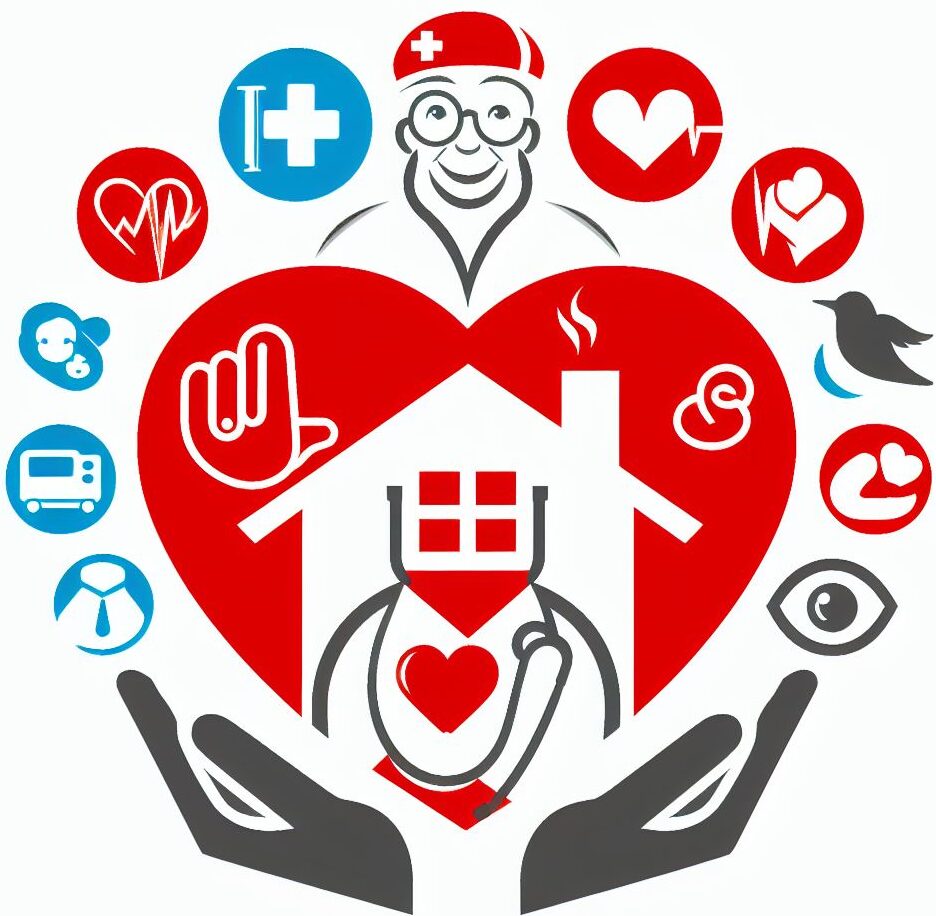The aging of Baby Boomers, a generation born between 1946 and 1964, has created an impactful demographic shift in the landscape of modern healthcare.
This group has been a driving force behind societal changes for decades, and their transition into the later stages of life is no exception. Therefore, the implications for healthcare systems worldwide are profound, touching on every aspect from service demand to innovation in care delivery.
This article examines the demographic’s influence on healthcare, identifying the unique challenges they face, exploring recent innovations tailored to meet their needs, and looking ahead to future trends and strategies.

The Baby Boomer Generation | Impact on Healthcare
Demographics of the Baby Boomer Cohort and Their Significance in Healthcare
The Baby Boomer generation constitutes a significant portion of the population, with millions entering their golden years. Their sheer numbers alone have a profound impact on healthcare, driving increased demand for services and influencing healthcare spending significantly.
This demographic shift is unprecedented, with Boomers now representing a substantial segment of the population over 65, a figure that is expected to grow in the coming years.
Moreover, it not only increases the demand for healthcare services but also changes the type of services required. For example, the emphasis is on three key areas:
- Geriatric care.
- Chronic disease management.
- And preventive health measures.
The Evolving Healthcare Needs of Aging Baby Boomers
As these individuals age, they encounter a variety of health issues that become more complex and challenging to manage. Chronic diseases such as hypertension, diabetes, and osteoporosis become more prevalent. As such, they require ongoing medical attention and support.
Additionally, the risk of acute conditions, such as strokes and heart attacks, increases. This necessitates robust emergency care services and rehabilitation facilities.
Therefore, the healthcare system must adapt to these evolving needs by providing comprehensive, multidisciplinary care that addresses both the physical and psychological aspects of aging.
Baby Boomers’ Influence on Healthcare Service Demand and Expenditure
The aging of the Baby Boomer generation has a direct impact on healthcare expenditure. This significantly influences national healthcare budgets.
Furthermore, the increased demand for medical services, coupled with the high cost of treating chronic conditions and the need for specialized care, drives up healthcare spending. This trend poses challenges for healthcare financing, requiring innovative solutions to ensure sustainability.
Policymakers and healthcare providers have the task of balancing the need for high-quality care. All this with the imperative to control costs and allocate resources efficiently.
Identifying the Unique Challenges Faced by Baby Boomers
Increased Prevalence of Chronic Conditions and the Need for Long-term Care
The prevalence of chronic conditions among Baby Boomers necessitates a shift in healthcare focus towards long-term care and management.
Conditions such as arthritis, cardiovascular diseases, and diabetes require not only medical treatment but also ongoing support, rehabilitation, and lifestyle adjustments.
As a result, this shift underscores the need for integrated care models that provide continuous support and emphasize the quality of life.
Navigating Medicare and Insurance Complexities
The complexity of Medicare, Medicaid, and private insurance options can be overwhelming for many Baby Boomers. Understanding coverage options, benefits, and limitations is crucial for making informed healthcare decisions.
Furthermore, this complexity is compounded by the frequent changes in healthcare policies and insurance plans. As such, it is imperative for individuals and families to stay informed and seek guidance from healthcare advisors.
The Mental Health Concerns Among Baby Boomers and Lack of Resources
Moreover, mental health is an often-overlooked aspect of Baby Boomers’ well-being. Additionally, issues such as depression, anxiety, and dementia are becoming increasingly common.
Notwithstanding, mental health services for this age group are often insufficient, lacking in both availability and specialization.
Addressing this gap requires a concerted effort to expand mental health resources, increase awareness, and integrate mental health care into the broader healthcare system for aging populations.
Healthcare Innovations Tailored to Baby Boomers
Advent of Telemedicine and Its Adoption by Baby Boomers
Telemedicine has revolutionized access to healthcare, particularly for Baby Boomers who may face mobility challenges or reside in remote areas.
By allowing patients to consult with healthcare providers via video calls, telemedicine breaks down barriers to care. Thus, this provides convenient and immediate access to medical advice and treatment.
Its adoption among Baby Boomers is growing, reflecting the potential of technology to enhance healthcare accessibility and efficiency.
Innovative Care Models: Coordinated Care and Patient-centered Approaches
The shift towards coordinated, patient-centered care models represents a significant innovation in addressing the healthcare needs of Baby Boomers. These models prioritize the holistic well-being of the patient, integrating various healthcare services to deliver comprehensive care.
Such approaches facilitate better management of chronic conditions, improve patient outcomes, and enhance the overall healthcare experience by ensuring that care is tailored to the individual’s specific needs and preferences.
Wearable Technology and Preventive Health Measures
Similarly, wearable technology has emerged as a powerful tool for preventive health, enabling continuous monitoring of vital signs and health metrics.
For Baby Boomers, wearables offer the possibility to track their health in real-time. Additionally, it promotes early detection of potential health issues and facilitates timely medical intervention.
Therefore, this technology supports a proactive approach to health management. It empowers Baby Boomers to take control of their well-being and reduce the risk of chronic diseases.

Preparing for the Future | Trends and Strategies in Healthcare
The healthcare industry is at a pivotal point, facing the dual challenges of meeting the current needs of Baby Boomers and preparing for future demands.
Strategic planning, investment in technology, and a focus on geriatric care workforce development are crucial for ensuring that the healthcare system can provide high-quality, sustainable care for aging populations.
We value your insights and experiences and invite you to share your thoughts and responses to the following questions in the comments section below.
- What has been your experience with telemedicine? Do you find it an effective alternative to traditional doctor visits?
- How has wearable technology influenced your approach to health and fitness? Share any gadgets that have made a significant impact on your wellness journey.
- Can you share strategies that have helped you manage chronic conditions effectively?
- What challenges have you faced in navigating Medicare and insurance options, and how have you overcome them?
- In what ways do you think healthcare services for Baby Boomers could be improved to better meet your needs?
- How do you stay informed about the latest health trends and medical advice relevant to our age group?
- What role has fitness played in your life as you’ve aged, and how do you adapt exercises to fit your capabilities?
- Have you experienced a significant improvement in your health or lifestyle due to a particular health innovation? If so, what was it?
- What are your thoughts on the mental health resources available for Baby Boomers, and what improvements would you like to see?
- Looking towards the future, what are your main health priorities, and how do you plan to achieve them?
Conclusion | Baby Boomers and Healthcare
The Baby Boomer generation’s impact on healthcare is profound, presenting both challenges and opportunities for innovation. As they age, the demand for healthcare services will continue to grow, necessitating a responsive and adaptive healthcare system.
We can ensure that they receive the care and support they deserve by:
- Understanding the unique needs of Baby Boomers
- Also, leveraging technology.
- Additionally, preparing for future trends.
Finally, the journey ahead is complex. However, the healthcare industry can rise to meet the challenge with strategic planning and innovation. This would help to ensure Baby Boomers and generations to follow live their later years in health and dignity.
Did you find value in “Baby Boomers and Healthcare | Trends, Challenges, Innovations”? Your contribution can help enrich our discussion and provide valuable perspectives on navigating health and wellness as a Baby Boomer.
Please feel free to share your thoughts, questions, or comments below. I’d love to hear from you and will be happy to respond.
Veron | Entrepreneur | The Way 4WordEnterprises
Personal Recommended Resources:
Another Daughter TM | A senior care service for independent Seniors living in or around Raleigh, NC

As a baby boomer, I find this post incredibly insightful and relevant. It accurately highlights the significant impact our generation has on the healthcare landscape due to our sheer numbers and evolving healthcare needs as we age.
The discussion on challenges such as navigating Medicare and insurance complexities resonates with my own experiences, and I appreciate the emphasis on innovative solutions like telemedicine and wearable technology. These advancements are indeed making healthcare more accessible and convenient for individuals like me.
The focus on mental health resources is particularly important and often overlooked, so I commend the inclusion of this topic in the discussion. Overall, this post offers valuable information and prompts meaningful reflections on how to navigate healthcare as a baby boomer.
Hi Bernard:
Thank you so much for taking the time to leave such a thoughtful comment on my post. It’s heartening to hear that you found the insights relevant and reflective of the baby boomer generation’s experiences with the healthcare system.
Your feedback underscores the importance of continuing these discussions and exploring solutions that cater to the unique needs of the baby boomer generation. I’m committed to providing valuable information and fostering meaningful conversations around these topics.
Thank you again for your insightful comment and for prompting further reflection on how to navigate healthcare challenges and opportunities.
Veron